Written by Ekaterina Griffin (UC San Diego), winner of The Californian Abroad Blog Contest (2024)
My parents named me Katia after the little children they taught in Russia while in the Peace Corps. Their tales of the bitter Russian winters, rowdy schoolchildren, and post-Soviet climate were better than any adventure book for me when growing up. It was as if they planted a seed of wanderlust when they gave me my Russian name.
It was always a fun conversation starter too. People would ask, “your name sounds Slavic, where are your parents from?” I always loved explaining the origin story. Telling the story was especially meaningful because I lost my mother when I was four years old. She died in childbirth from an extremely rare complication called Amniotic Fluid Embolism.
I always wanted to further her legacy by living abroad just as she did, yet my family’s low-income background made the dream challenging. I was determined to make it happen, however, and I worked tirelessly to apply for scholarships and earn extra money to fully fund my study abroad experience on my own.
I’m happy to say that thanks to the generosity of several scholarship foundations such as the Chris Borten Memorial, I was able to study abroad for a full academic year in the small town of Utrecht in the Netherlands.
I’m here to tell you – you can do it too!
Why a year?
You might ask why study abroad for a year, and that would be expected. Studying abroad for that amount of time was important to me for two reasons:
- My mother spent two years abroad in Russia, and a year was the closest I could get to that, and
- My father emphasized how culturally immersive the longer stay was for both of them.
Going abroad for a year was a no-brainer to me, but it meant that I had to do more creative and upfront preparation before I left.
As a STEM student majoring in Atmospheric and Oceanic Sciences, advisors warned me that I might not graduate on time. My friends told me I would get too homesick and that a semester would be better, and I assumed it would be more expensive.
When I accepted how badly I wanted to be abroad for longer than a semester, I found ways to make it a reality.
To speed up my academics, I enrolled in three summer classes and registered for an online community college course while abroad. I also sent pre-approval petitions to ensure that I would graduate on time. At the same time, I worked a part-time job and applied to as many scholarships as possible (tips on that later in this post).
Contrary to my assumptions and popular belief, I discovered that a full year abroad is often the cheapest option. Rent and food in Europe is much less than California even though I lived in the Netherlands, which is known for being an expensive country.
It takes time to acclimate
Studying abroad for a year is essential for a truly immersive and culturally rich experience. If I’d left after four months, I wouldn’t have been able to travel to as many countries or experience Dutch Christmas traditions like Sinterklaas.
I wouldn’t have formed deep bonds with my European friends, who did not endure culture shock the same way my American friends and I did.
If I’d come home after a semester, I wouldn’t have been able to live in Normandy, France, with my French roommate over spring break, and I would have lost out on another authentic experience. I would have never eaten fresh croissants in the French countryside or called Normandy home. I wouldn’t have seen Madrid with my Spanish roommate and all of her local friends or tried their favorite Tinto de Veranos.
I made many UCEAP friends who loved their semester ‘trip,’ but it felt to them like an extended vacation. It took me a few months to adapt to living in the Netherlands, especially during the cold winter!
It takes time to adjust to a new environment and having ten months to do this made the process so much more enriching because I was able to learn more without being stressed about not having enough time.
It takes time to achieve a legacy
My goal to further my mother’s legacy by living abroad as she did, fostered a legacy of my own. Just as my dad would call their tiny village in Vladivostok, Russia their second home, I was able to have that experience for myself in the Netherlands.
As I’m typing this from Utrecht, it feels strange to think I haven’t always lived here. Every morning, I grab my pink bicycle and ride to class. Every afternoon, I read by the canals, and seeing a grey sky is second nature to me. It’s a privilege to be able to live what feels like an entire lifetime in a year, just as my mama did.
My mother’s untimely death taught me that none of us know the timeline of our lives, and if we wait for these kinds of opportunities to come along, we may never have the chance to take them. If she hadn’t joined the Peace Corps and lived in Russia, her legacy wouldn’t be as meaningful as it is because people from across the globe wouldn’t have known her. She wouldn’t have pursued international law, and I would likely not have been named Katia.
My tips for finding scholarships to study abroad
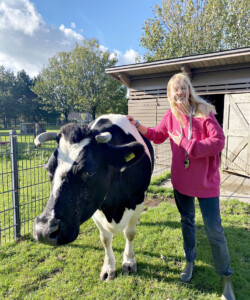 As a student from a low-income background, I knew that if I wanted to pursue studying abroad, I’d have to find all of the funds on my own. My family didn’t even pay for my overweight baggage fees!
As a student from a low-income background, I knew that if I wanted to pursue studying abroad, I’d have to find all of the funds on my own. My family didn’t even pay for my overweight baggage fees!
When I posted about my adventures on Instagram and all the places I was able to visit, people were confused about how someone from my background could afford to do this, and I had one word for them: scholarships!
I feel blessed and grateful to have been awarded seven scholarships, including:
- The Chris Borton Memorial Scholarship
- The UCEAP scholarship award
- The Fung Study Abroad scholarship
- And more
I highly recommend starting with the UCEAP Scholarship portal and your UC campus’ study abroad office awards. Always start local because you’ll have less competition. For example, I was awarded the Warren College (UC San Diego) study abroad scholarship simply because not many people knew it existed.
Don’t ignore the smaller awards either – it all adds up!
UCEAP hosts webinars to prepare you for what the scholarship donors are looking for in the essays, and the primary tip that helped me the most was: Be Specific. Instead of simply saying that I wanted to make friends of many different backgrounds while abroad (which I did), I researched my host university’s clubs to find one that would help me meet new people while there. In my scholarship essay, I wrote, “I’m eager to join the Erasmus Student Network, which connects international students at my host university.”
This level of specificity shows the donor that you are serious about your study abroad experience and willing to do your own research to make it a meaningful one.
Lastly, I looked online for travel-specific awards. Sure, you’ll be competing with more people, but you can simply and efficiently recycle and alter each of the essays that you’ve composed for other applications to customize it to the new application and give yourself as many chances to win as possible.
Finally, I encourage students of any background to be at least curious about studying abroad. After all, how many legacies do you want to create? Having traveled to 21 countries before I turned 21 and living in a village of my own for a year, I have furthered my mother’s legacy and made my own.
I’m not stopping after this year, either. Let’s keep exploring!
Learn more about family when you study abroad
- What Brandon Yoon learned about family heritage in South Korea.
- How a holiday harvesting olives created a sense of belonging for Elias Veran.
- Why a study abroad homestay just might be the best decision ever.
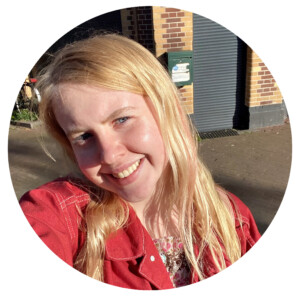

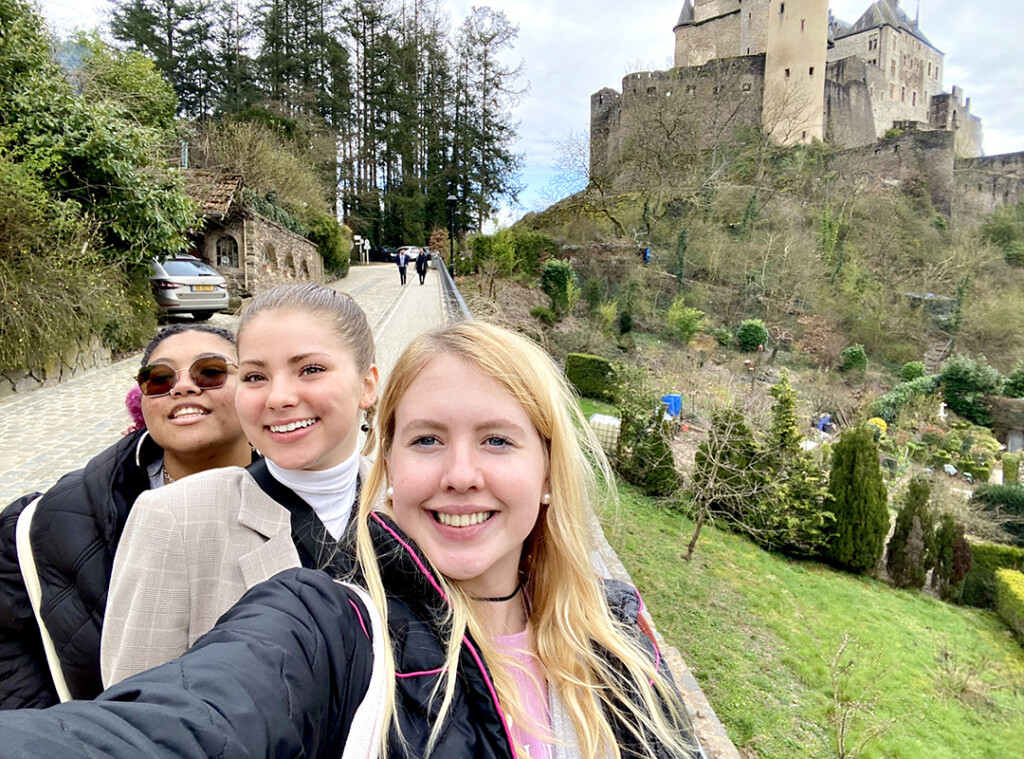
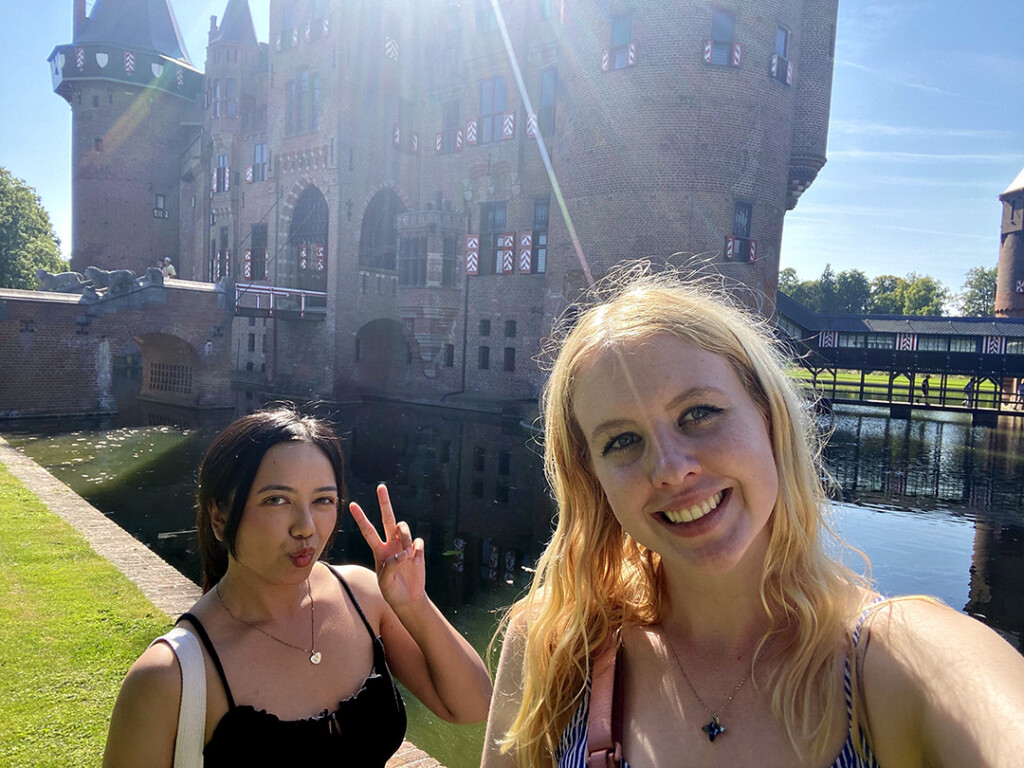
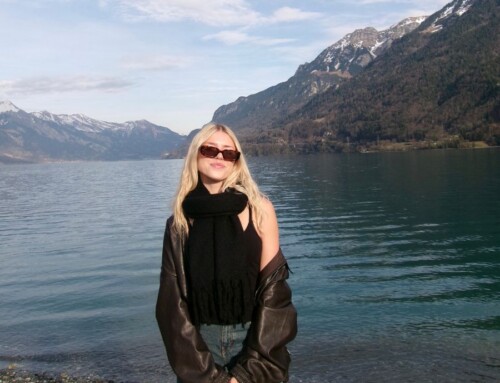
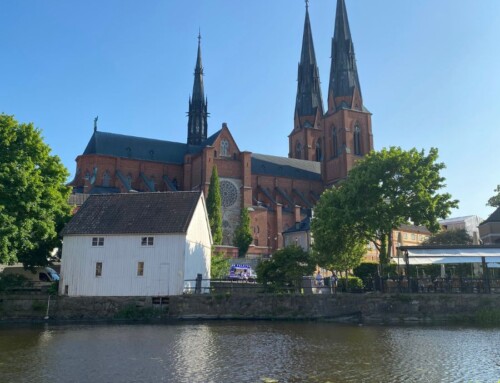


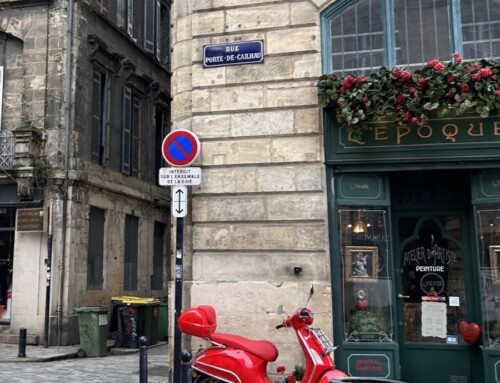
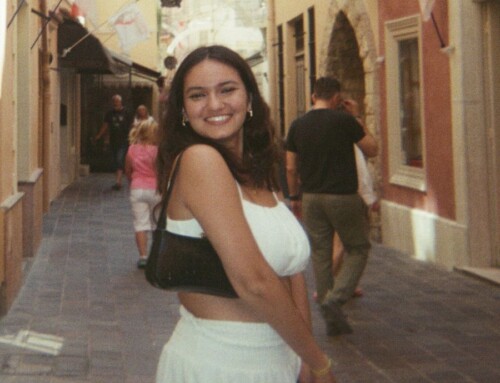
Leave A Comment